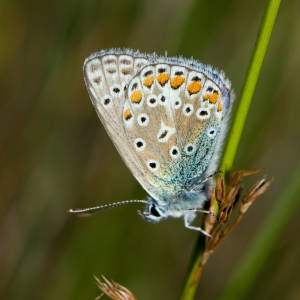Under an English Heaven
I've been exchanging emails with an illustrator in Poland about a collaboration on a children's book. I'd sent over the story but she wanted some more description from me. I was keen to refer to another children's book I remembered reading our boys at bedtime. Gill thought it was up in the loft so I went up there to search.
If you think the internet is distracting then you should see our loft. I've been trying to persuade Gill to have a clear out for a while but neither of us is very good at it. I was throwing out some school books of son Rob's then found one with some little stories and pictures he must have written and drawn about the time his younger brother, George, was born, recalling seeing the new baby. It made me quite moist eyed. That one didn't go.
But this time we've persevered and stuff has gone - a few old computers are awaiting disposal in the Jeep and quite a lot of papers have gone too. We're pondering over other stuff. Gill has a coin collection which looks quite impressive until you check prices on EBAY and realise it isn't worth much. We have a couple of these Churchill coins here that were issued shortly after his death in 1965. And so do many many people.
When it came to blipping time - indoors again - I felt I hadn't yet done with that CD I blipped yesterday so started messing around with silver paper and lights and then thought about mounting the coin in the middle. I don't know what it's trying to say - nothing really - but in all our rummaging yesterday I found an old school geography text book, Wheaton's Suggestive Geographies Part IV, dated 1922 - must have belonged to a grandparent. Anyway it's all about the growth of empire and the British Colonies.
There are some amazing questions relating to colonisation that British schoolchildren were being asked to consider at the time: What will happen to hostile natives? Will there be room for an additional population? Apart from barbarity of the action, could a dense native population be exterminated? It does, however, make it clear that the duty of the "Englishmen" (note it doesn't say British, or include women) is to "help direct and govern in such a way that the native race receives the benefit." Oh that's all right then.
It goes on to talk about the "degraded" bushmen of the Kalahari and the "Kaffirs" of South Africa. Of the Australian Aborigines there is not one word, but it does mention the "stubborn and dangerous" Maories, the "cannibalistic" tribes of New Guinea and the Polynesians who, it says, have lighter brown skin, "more pleasing" features and who, it adds, are "more intelligent". The distinction here is between "natives". It's not for one second suggesting that anyone native to a colonised country could be the intellectual equal of an Englishman. When we read our history books today it's easy to forget that white supremacy was not an invention of the National Socialists in Germany. In the British Empire at its zenith, it was taken for granted. I'll be hanging on to this book. As for that children's book - still haven't found it!
The blip title, you may have spotted, comes from the Rupert Brooke sonnet, The Soldier.
- 4
- 0
- Nikon D200
- f/22.0
- 60mm
- 100

Comments
Sign in or get an account to comment.


